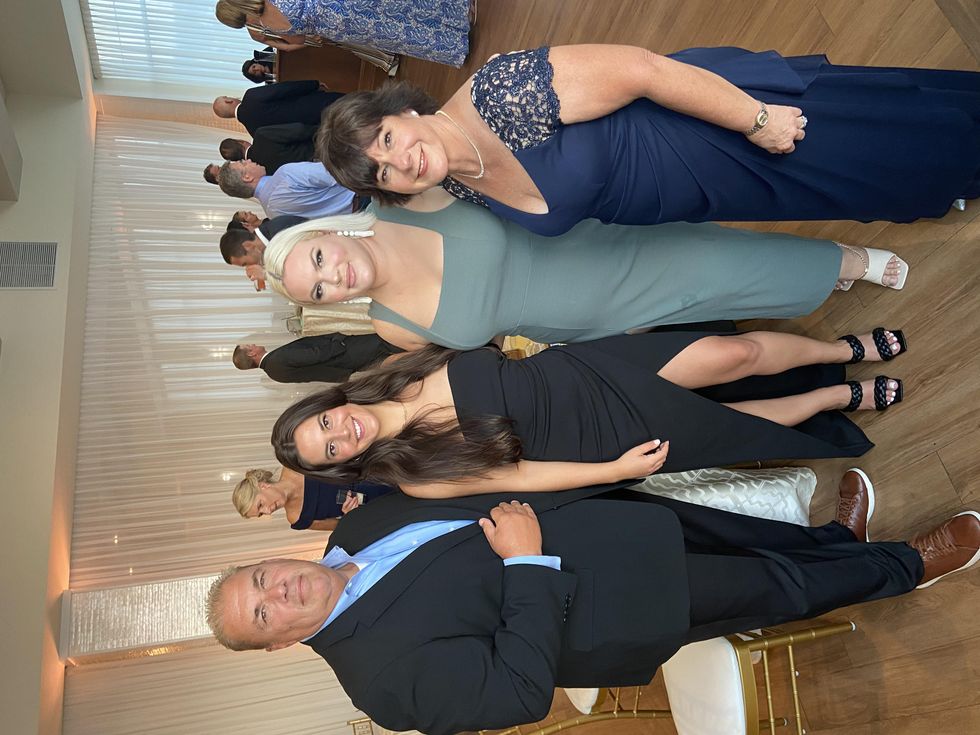I am a nondrinker. I don't drink alcohol. Ever. I also don't smoke weed, meth, or crack. I don't shoot heroin. I don't snort cocaine, OxyContin or Xanax.
Well, not anymore.
I have been in recovery for almost 6 years. A long term treatment facility and NA saved my life. With the recent buzzy social trends of "California sober" and the popular book "How to Quit Like a Woman," I feel scared for people looking to seek asylum from addiction. I come from a philosophy of "complete and total" abstinence, as do all AA and NA programs.
If I were to categorize three different types of people in the world when it comes to substance abuse, it would be this:
The nonaddicts.
They can either take or leave alcohol. They could have a glass of wine at dinner and not have an urge to drink for a week, maybe even a month. They don't think about substances constantly. They don't do recreational drugs. They don't smoke cigarettes. They drink very socially, and they drink for taste or celebration.
The abusers.
These are the people who, biologically, are not addicts but might gt physically hooked on a substance like cocaine or abuse alcohol on the weekends. Or maybe it's not the frequency with which they drink that is troublesome but the behavior that comes from being under the influence. Maybe it's anger or maybe it's sadness. Maybe they're just tired of being hungover or going home with strangers. But they weren't born addicts, so if something were to happen like a consequence, a DUI or arrest, and they were forced to stop, they could.
The alcoholics and drug addicts.
Alcoholics and drug addicts are those born with the disease of alcoholism and addiction, those who have known from a very young age that they would always be addicted to something. Those who, like me, look back as an adult and see patterns and behaviors as a child that translate directly into behaviors of addiction. Hoarding, trying to achieve pleasure wherever and whenever possible, dangerous sexual behaviors, thrill seeking, being in precarious situations in an attempt to get drugs or money for drugs.
I recently read the book, How to Quit Like a Woman by Holly Whitaker. She makes some valid points. As a medical professional, I loved the beginning chapters about the harmful effects of alcohol on the body. I already knew some of them, like how it can affect REM sleep, dehydrate the skin, and destroy the liver, but there was much that I didn't know about the negative effects on the body and more importantly, how linked alcohol is to cancer, especially in women. I also appreciated the main point of the book, which is how to get sober by creating new healthy routines like yoga, meditation, breath work, a nutritious diet, quality sleep, hydration, and talk therapy. What I didn't appreciate was the way she was quick to condemn AA. Yes, AA was created in the 1930s by middle-aged white men. Yes, some meetings are more dominated by men than women. But I have never walked into a meeting and felt that I was being "dominated by the patriarchy." I have never felt that my feminism was at risk. I have never felt that I am made to feel smaller at meetings. If anything I am most heard at meetings, most validated; more so now than I when I was growing up in my household as a child.
My road to recovery included four months in a treatment center, followed by sober living, and eventually moving into my own apartment. The whole time, I was attending meetings regularly. It was the people, and the routine, and the literature, and the discussions that kept me clean and sober. It was the constant reminder that I have a disease of the brain that can turn on me at any minute, if I don't keep it in check.
I disagree with Holly's views on alcoholism and her non-acceptance of it as a disease. Nobody wants to say they have a disease, and no one wants to be looked at and pitied and treated as such. But if I don't let people know, or people don't understand the gravity of my addiction and how bad things were, then they can't be a supportive force in my life, now as a sober person.
Scientifically, addiction is very much a disease and although she disliked the language that related alcoholism as a disease, it is.
And if I, or any other addict or alcoholic, start to believe that it's not, then our disease will tell us that we don't need to go to meetings, we don't need to see other people in our network, we don't need to go to therapy, and we don't need to continue our spiritual practice.
It's that line of thinking that could kill me and other addicts.
All the things that Holly mentioned in her book, the ingredients in her recipe for sobriety, were fantastic suggestions, and some could argue that they are vital to a full spiritual life, but they are merely the accoutrements to which NA is my main course.
This is a very controversial topic, but I also disagreed with the harm reduction model talked about in "quit like a woman." It's also referred to in the entirely made up new subset of sobriety that is "California sober." It can be argued that addiction is causing such despair and destruction in families and so many people are struggling to get clean that if we can reduce the harm from drugs such as heroin or crack cocaine to "less dangerous drugs" such as marijuana, then we are saving lives. But we cannot fool ourselves into thinking that using alcohol and smoking marijuana, while shunning opiates is any sort of recovery from addiction or quality sobriety.
If someone is truly an addict or alcoholic, they are merely replacing one drug with another. My brain cannot distinguish the difference between an opiate and alcohol. My brain just knows there is a substance in my body that alters my mind and mood, and it immediately wants more, at any cost. To call yourself sober for doing some drugs and not others is merely semantics. I know It is also very controversial to say that people who use methadone and Suboxone are not sober, and that we should accept people where they are and embrace them, but Methadone and Suboxone assist people because they are partially a narcotic, which prohibits the person from going into a full withdrawal.
Recovery is complete abstinence. Recovery is doing the real work and doing it dead sober and fully awake. Every person who has gotten clean and sober has had to go through withdrawal at some point, whether it was at home or a detox or rehab or on the street or sitting in a cold metal chair in a church basement.
That is sobriety.
It is ugly. It is messy. It is raw. It is painful, but it was crucial to my survival. I have personally seen so many people come off the streets, in full withdrawal, into the program and maintain long-term sobriety. We rip off the bandaid and kick and scream and cry and claw our way into one day clean, one week clean, one month, one year. We are surrounded and held by people who have been in our shoes.
Most of my friends and people in my network know that I am very bothered by Demi Lovato's overdose and continual use of alcohol and marijuana. If Demi has such control over their addiction that they are able to use alcohol and marijuana in moderation, then why do they need to receive the Vivitrol shot? For those who don't know, Vivitrol is Narcan, the lifesaving drug that reverses the effects of opiate overdose. People in recovery sometimes receive Vivitrol as a monthly injection to curb opiate cravings and also protect them if they were to attempt to use opiates by blocking the effect. Simply put, Vivitrol prevents overdoses. If the person receiving the Vivitrol injections were to use opiates, they would be sent into an immediate withdrawal, or feel no effect from the opiate at all.
One would imagine that Demi is receiving the shot to prevent another drug overdose, perhaps at the request of their team, or maybe it's a personal choice. But statements that they can successfully and moderately use alcohol and marijuana but "would never touch heroin or opiates again" it's just plain untrue. No one can predict that and no addict can make that statement with confidence. It's curious that they need this preventative insurance against opiates if they assert to have such control over their use and addiction and know when to stop. I believe in their YouTube documentary, they stated that their relapse turned overdose, which left them with permanent neurological deficits, after 6 years of sobriety, started with a glass of red wine.
Quit Like a Woman is a great book for "the abusers", people in the in between category (as mentioned earlier in this essay.) It's for those looking for a lifestyle change, those looking for some clarity or those looking to feel physically better. Maybe even those looking to spiritually evolve and better themselves (and they know that to try to do that while still using substances may be fruitless).
This book is not good for is the addicts and alcoholics who need complete abstinence to survive. If an addict believes that they just have to quit heroin and they can successfully use marijuana, then one day they will talk themselves into thinking they can successfully use heroin.
…And no one can successfully shoot heroin. Trust me, many have tried. I don't have any control over drinking or doing drugs. Just as a person with depression has no control over their mood or thoughts, or a schizophrenic can control the voices they hear, addicts are powerless over their use.
We have to treat alcoholism and drug addiction as a disease with complete sobriety being the treatment, or the consequences will be deadly.

















